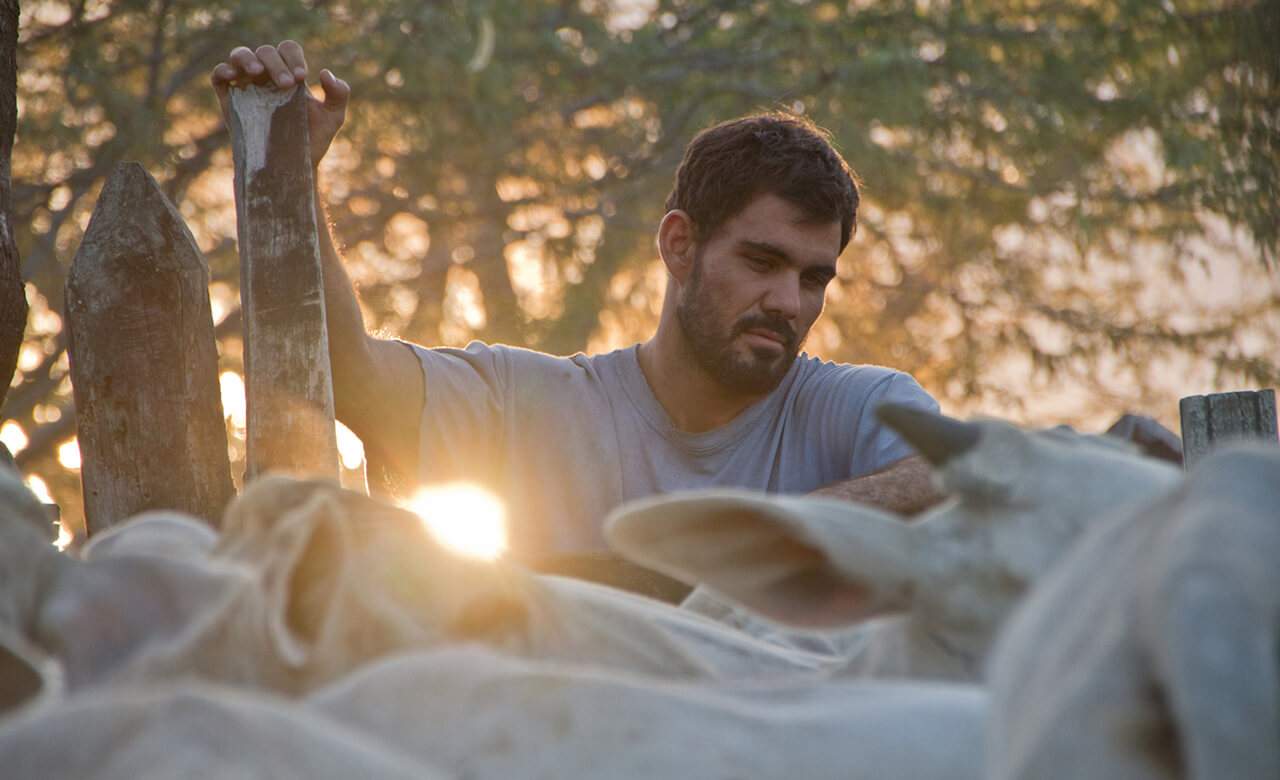Neon Bull
This gentle observational drama takes viewers inside the world of the Brazilian rodeo circuit.
Overview
Cowboys, bucking bulls, flying mud: think of a rodeo, and all three come to mind. Setting Neon Bull in the thick of the Brazilian circuit, writer-director Gabriel Mascaro knows this. In fact, he invites it. With audiences' heads initially filled with the stereotypical sights and sounds that many an American movie has reinforced, he revels in revealing something different. Scene by scene, he immerses viewers in a version of the sport known as vaquejada, as well as the world that exists beyond the usual hats, boots, and attempts at grabbing cattle. In the process, he introduces us to the often overlooked people lurking behind the scenes.
For Iremar (Juliano Cazarré), it's a modest existence as well as a tough one, with two dreams enlivening his otherwise routine days of transporting animals and chalking the bulls' tails before they enter the ring. Whenever and however he can, he bides his time through fashion — drawing outfits onto the naked women in the magazines his co-worker Zé (Carlos Pessoa) covets, and making costumes for their driver Galega (Maeve Jinkings) to wear when she moonlights as a dancer. With Zé, he also schemes to steal a prized horse's semen.
Neon Bull isn't a quirky caper, as much as it might sound like it. Indeed, with scenes of Galega shimmying in the dark while wearing a giant horse mask, a subplot involving another worker's obsession with straightening his long locks, and yet another involving breaking into a textile factory, the film could easily be treated as a comedy. Mascaro doesn't avoid laughs, but rather than emphasise the humor, he lets any chuckles spring naturally and honestly. His characters and their lives are filled with lived-in eccentricity; all he and Cemetery of Splendour cinematographer Diego Garcia need to do is watch.
Episodic and observational, it's the kind of approach a documentarian would take, so it shouldn't come as a surprise that most of Mascaro's career has been spent making factual films. As a result, although he's working with actors and there's never any doubt that his movie is fictional, even the most surreal and fanciful of sequences feel real. Galega's young daughter Cacá (lyne Santana) perhaps illustrates this best. Looking on with wide eyes, she's fascinated with Iremar, yet accepts everything ordinary and unusual that she sees. Here, in the heat and the dust, with the people who have become her makeshift family, that's just the way things are.
Commentary about the film's country of origin shades Neon Bull's frames. Iremar and his pals show that life is changing in the rodeo realm, just as it is in broader Brazil. The movie also investigates the link between those who walk on two legs and those who walk on four. We care for, corral and try to conquer these animals, yet the film shows that in a lot of ways we're really not all that different. Laced with empathy, insight and more than a few narrative, visual and emotional surprises, Neon Bull proves a winner.





